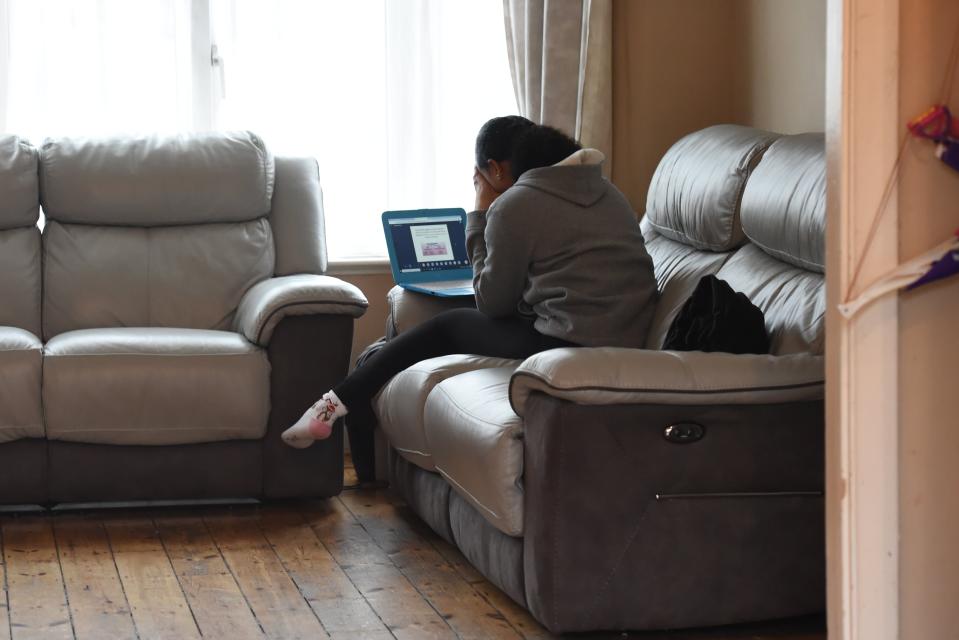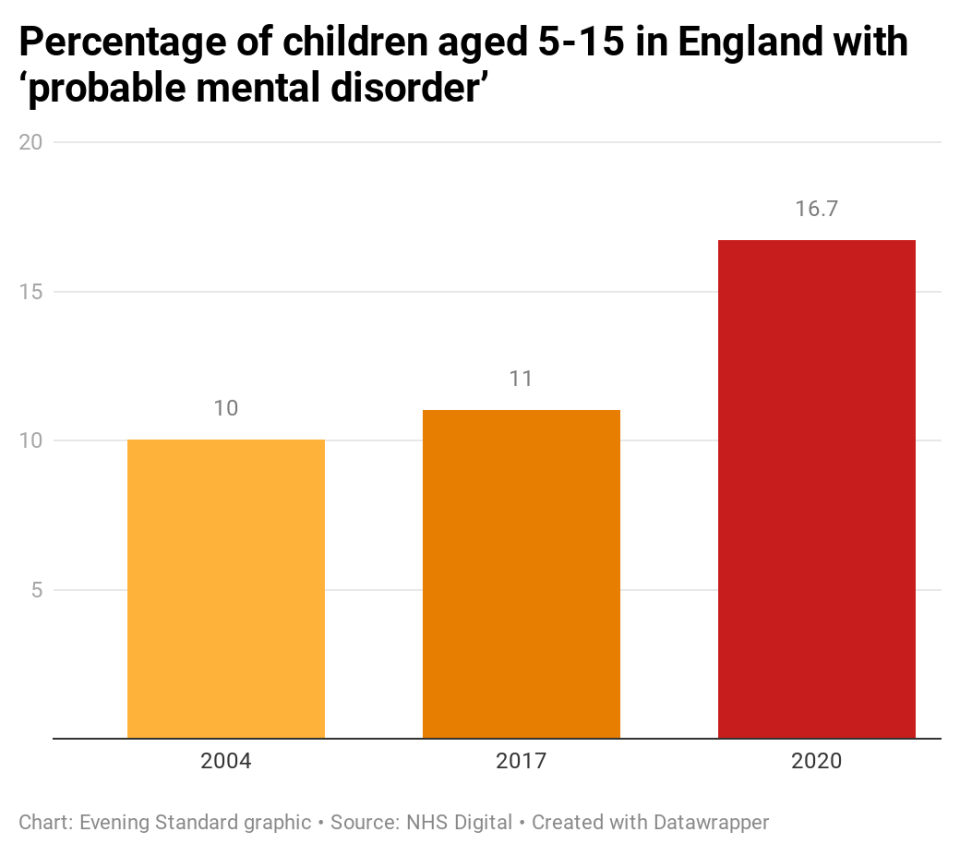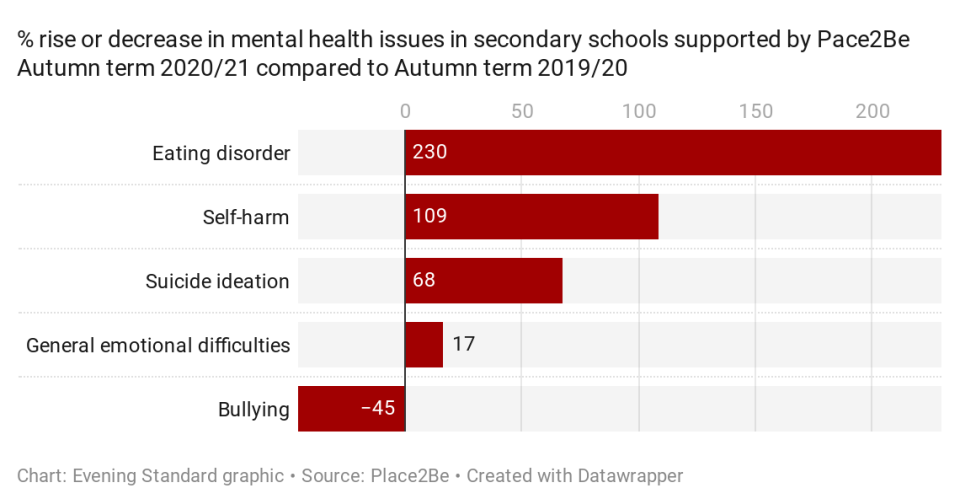Children’s mental health: The hidden crisis of Covid laid bare

Hundreds of thousands of children and adolescents who had no diagnosable mental health problems before the pandemic will need care and support this year as a consequence of the crisis, an Evening Standard investigation has revealed.
With cases already at unprecedented levels, the Centre for Mental Health says a new cohort of 500,000 previously healthy children under 18 will require mental health care due to the devastating economic, health and family pressures caused by the virus crisis.
The centre’s research incorporates 2020 data from NHS Trusts and NHS England to forecast additional demand for mental health services.
Leaders of secondary and primary schools across London who were approached in our special investigation also spoke of the unfolding crisis.
It comes on top of already troubling data from NHS Digital that shows a 50 per cent rise in mental disorders over the last three years, with one in six children (16.7 per cent) in England aged five to 16 having a “probable mental disorder” in 2020, up from one in nine in 2017 — having been steady at 10 per cent for the previous decade.
It means that today in a class of 24, an average of four students have serious mental health issues — defined as emotional disorders and behavioural disorders that impair their ability to live a normal life.
The Standard has sought to understand the crisis, speaking to students, parents, counsellors, head teachers and mental health experts to shine a light on what some are calling “the hidden mental health crisis of the Covid generation”.
Our investigation has revealed:
A 109 per cent rise in reported incidents of self-harm and a 68 per cent rise in suicidal thoughts in secondary schools during the 2020 autumn term, according to Place2Be charity, the UK’s leading provider of school-based mental health services.
Children as young as five reporting self-harm and suicidal thoughts to counsellors.
A tripling in eating disorder incidents reported by adolescents.
A spike in adolescents attending A&E with mental health emergencies.

Head teachers warned that “the worst is yet to come”, with some schools reporting a doubling in the number of students they have referred to child and adolescent mental health services this academic year over last.

This will heap pressure on a care system already stretched beyond breaking point. Only around 25 per cent of young people with diagnosable mental health problems currently get the care they need on the NHS.
For those youngsters who do get seen, waiting times in the capital can stretch from two to three months — the longest being a six-month wait at the West London Mental Health Trust, according to the Education Policy Institute.
It creates a compelling case for the Government to put more resources into child and adolescent mental health outpatient services, the Cinderella of the health sector where just £500 is spent per child with a serious mental health problem per year compared with £275,000 per cancer patient.
For information and support call Mind on 0300 123 3393
Read More
Children pushed over the edge by lockdown trauma
‘Chatting online is such poor substitute for seeing each other’

 Yahoo Finance
Yahoo Finance 